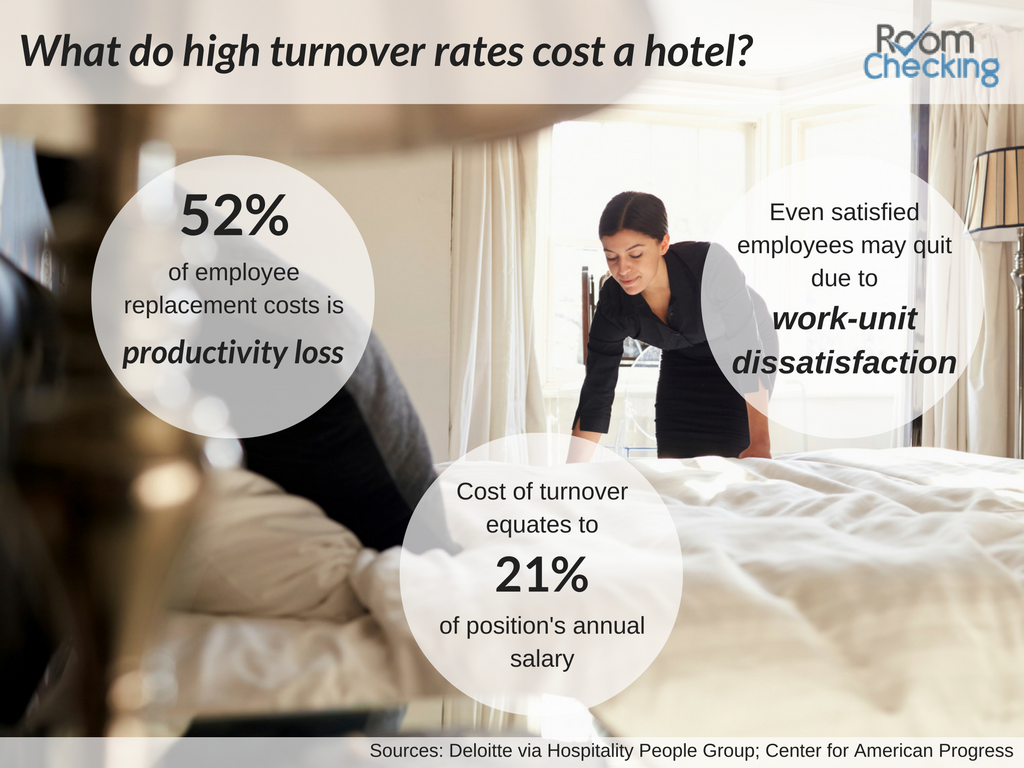
The hospitality industry has a very high turnover rate throughout the industry- up to 31% in some cases- which proves very costly for hotels, for whom 52% of employee replacement costs is productivity loss. The higher the turnover, the more a hotel has to spend hiring and training replacements. Some studies estimate that the cost of turnover equates to roughly 21% of an employee’s annual salary, meaning that even lower paying jobs are expensive to replace.
There are many reasons someone may quit a job in hospitality: low wages, lack of opportunity for growth, job dissatisfaction, poor management practices, discrimination, and stress, among others. One of the core issues with turnover in the hospitality industry is the seasonal nature of the industry itself, leading to new hires in the high season, layoffs in the low season, and an overall “turnover culture.” Students and young people are more likely to seek employment in the hospitality industry because of the low entrance qualifications and flexible nature of the jobs, but don’t generally view it as a career path, due in part to lack of development and little opportunity for upward mobility.

A result of many of these issues is work-unit dissatisfaction, yet another reason employees are motivated to quit. A study conducted by the Cornell University School of Hotel Administrationrevealed that the more satisfied a work unit is, the more likely it is to affect individual satisfaction, which has a direct correlation with hotel turnover rates.
The greater issue with this is the risk of losing good employees who, though individually more satisfied, can be pushed to leave by the dissatisfaction of the work unit. Called “turnover contagion”, it also reinforces the influence that the work environment has on the individual worker and the importance of a positive work environment, into which employees can “embed” themselves, through interpersonal relationships with colleagues and individual aptitude for their position. The less an employee is embedded, the less he has to lose by seeking out other work opportunities.
With fewer than half of hoteliers planning on investing in staff training in 2016, has high turnover simply become part of the hospitality industry’s culture, leading to a concern that the costs of staff training will outweigh the costs of staff replacement? Especially if this is the case, hoteliers need to consider what internal changes can be made to staff formation in order to combat the hotel turnover rate.

